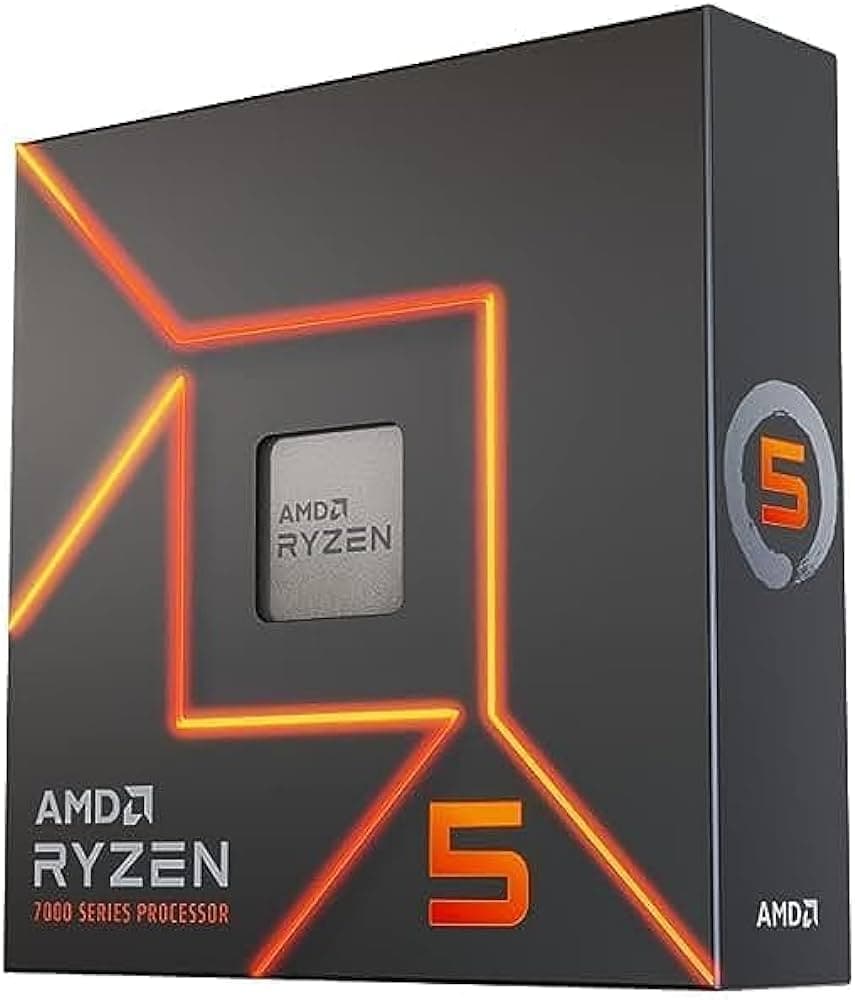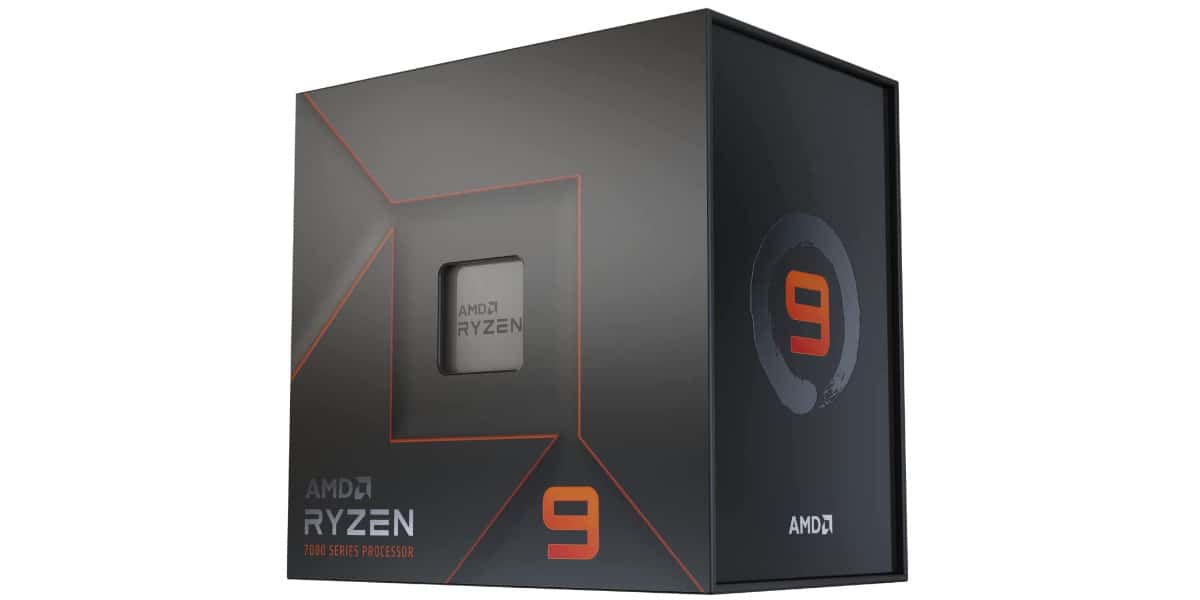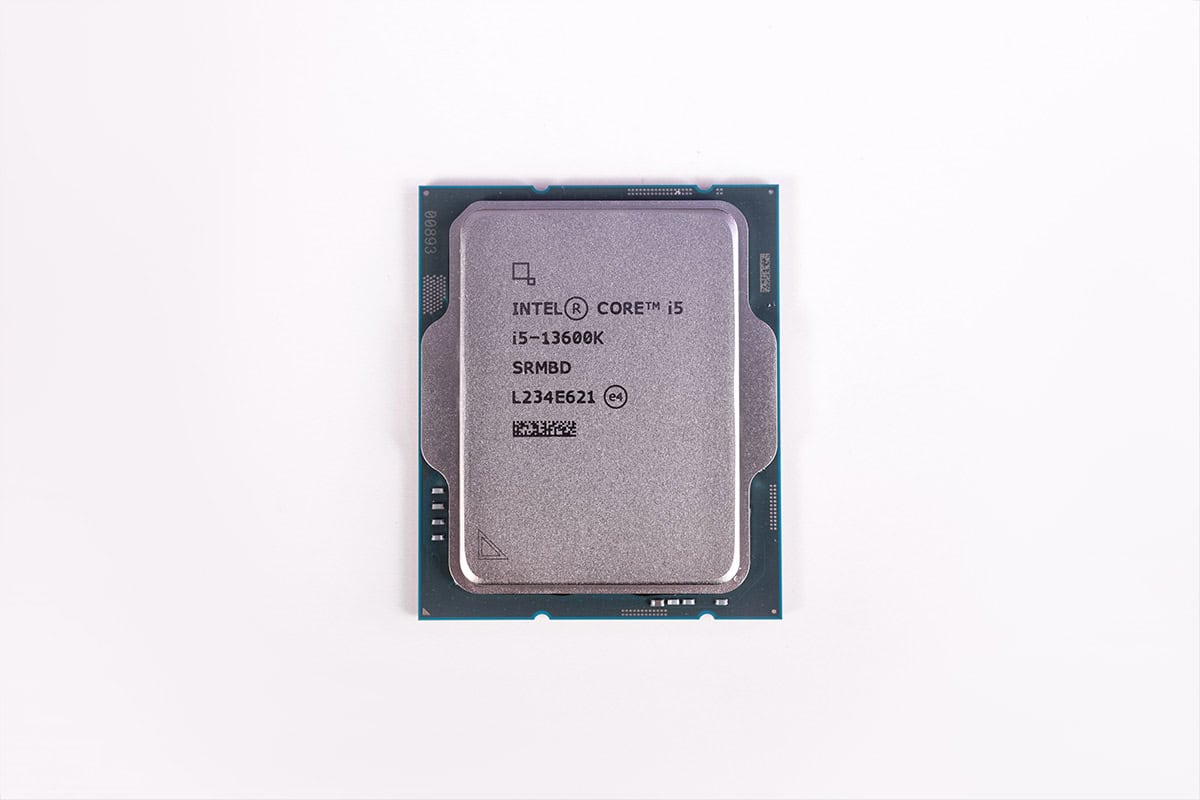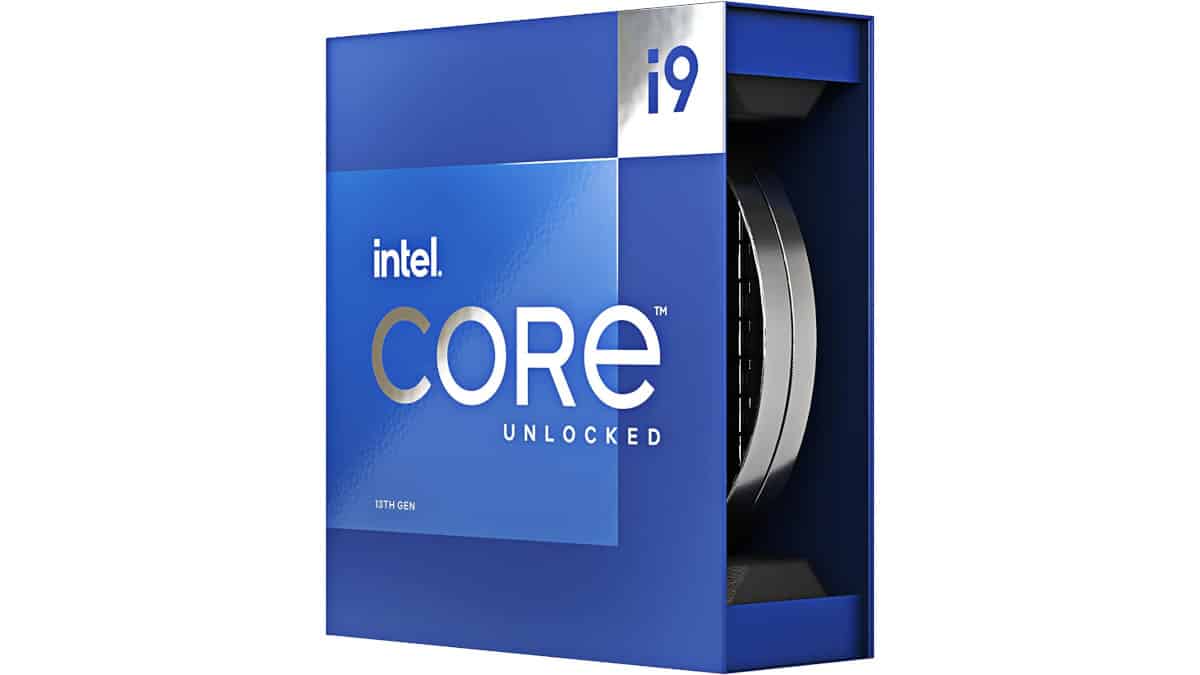Ryzen 7 9700X Vs Core i7-14700K – Does Team Red offer better performance?

Table of Contents
The Ryzen 9000 series was previously scheduled to arrive on July 31. However, it was delayed to the second and third weeks of August. Well, we’re going to pin the Ryzen 7 9700X, a mid-range processor, against a CPU that we’ve reviewed, the Core i7-14700K. The Intel chip managed to deliver great performance during our tests, but it’s time to find out if AMD will be able to beat it or not. We’ll analyze their speeds, TDP, core counts, and price differences to see how they stack up.
Also, the 9700X launched on August 8th, and if you want to get your hands on it, you can check out our Where to Buy 9700X page. On it, we’ve listed major retailers that will offer this processor. Plus you can check out our 9700X review to see if it’s even worth considering.
Prime Day is finally here! Find all the biggest tech and PC deals below.
- Sapphire 11348-03-20G Pulse AMD Radeon™ RX 9070 XT Was $779 Now $739
- AMD Ryzen 7 7800X3D 8-Core, 16-Thread Desktop Processor Was $449 Now $341
- ASUS RTX™ 5060 OC Edition Graphics Card Was $379 Now $339
- LG 77-Inch Class OLED evo AI 4K C5 Series Smart TV Was $3,696 Now $2,796
- Intel® Core™ i7-14700K New Gaming Desktop Was $320.99 Now $274
- Lexar 2TB NM1090 w/HeatSink SSD PCIe Gen5x4 NVMe M.2 Was $281.97 Now $214.98
- Apple Watch Series 10 GPS + Cellular 42mm case Smartwatch Was $499.99 Now $379.99
- ASUS ROG Strix G16 (2025) 16" FHD, RTX 5060 gaming laptop Was $1,499.99 Now $1,274.99
- Apple iPad mini (A17 Pro): Apple Intelligence Was $499.99 Now $379.99
*Prices and savings subject to change. Click through to get the current prices.
AMD Ryzen 7 9700X
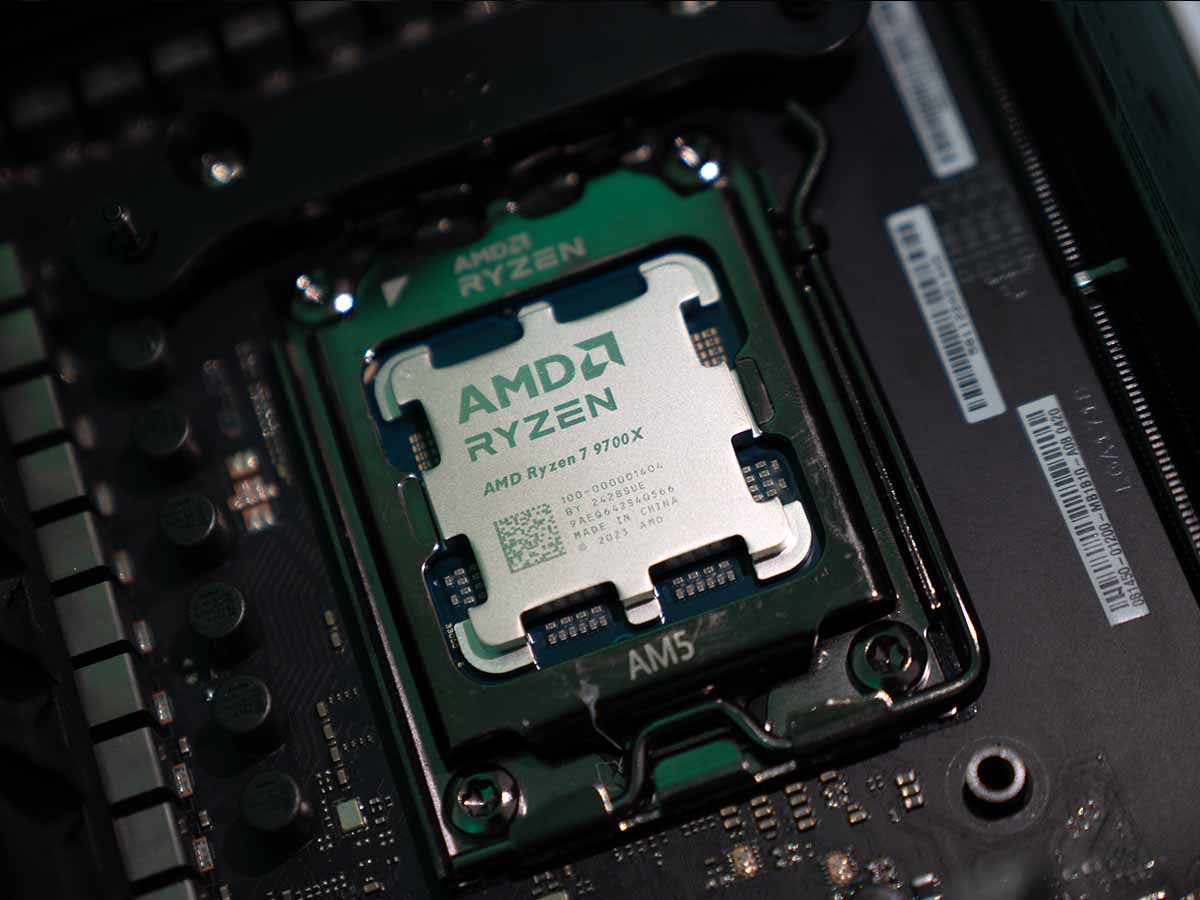
Cores
8
Threads
16
Boost clock speed
5.5 GHz
Base clock speed
3.8 GHz
L3 Cache
32 MB
TDP
65 W
Platform
AMD Socket AM5
Shop on Amazon
CHECK PRICEIntel Core i7-14700K
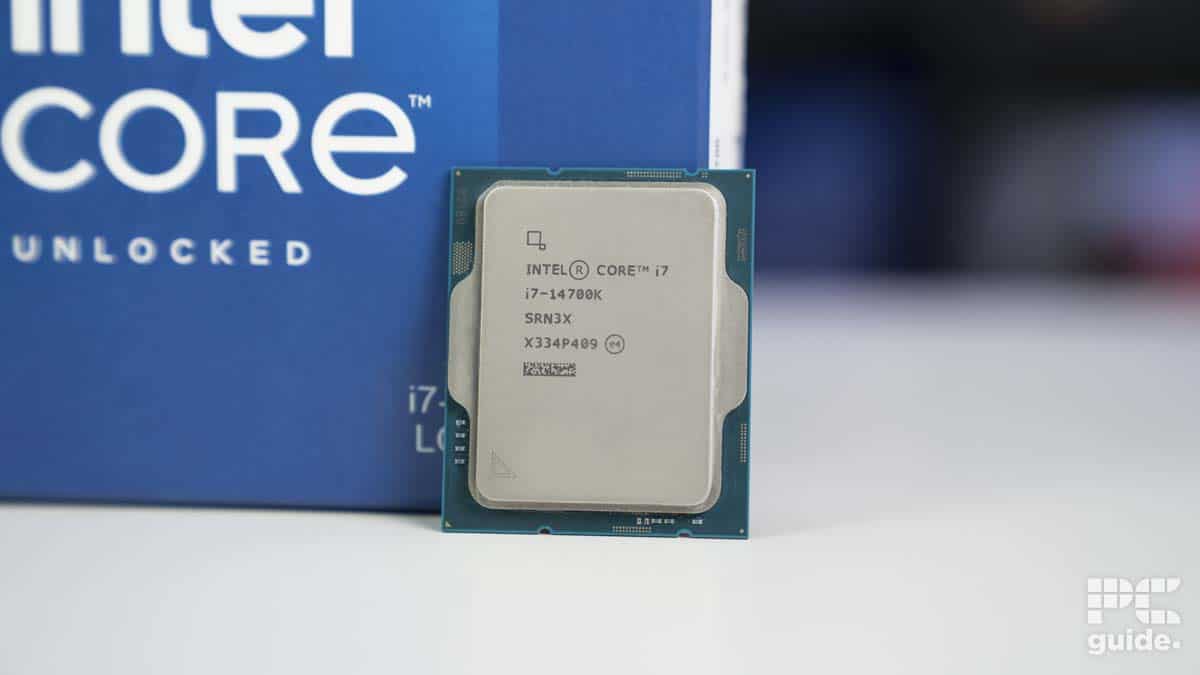
Cores
20 (8P-12E)
Threads
28
Boost clock speed
P-Core 5.5GHz / E-Core 4.3GHz
Base clock speed
P-Core 2.5GHz / E-Core 3.4GHz
L3 Cache
33 MB
TDP
125W
Platform
Intel Socket 1700
Shop on Amazon
CHECK PRICESpecifications
| Specifications | Ryzen 7 9700X | Intel Core i7-14700K |
| Architecture | Zen 5 | Raptor Lake-R |
| Socket | AM5 | LGA 1700 |
| Process | TSMC 4nm FinFET | 10 nm |
| Cores | 8 | 20 (8 Performance and 12 Efficient Cores) |
| Threads | 16 | 28 |
| Base clock speed | 3.8 GHz | E-core 2.5 GHz, P-core 3.4 GHz |
| Boost clock speed | 5.5 GHz | 5.6 GHz |
| L3 Cache | 32 MB | 33 MB |
| TDP | 65W | 125W/253W |
| Integrated graphics | AMD Radeon Graphics | Intel UHD Graphics 770 |
Looking at the specifications, the process technology, design, and architecture of both processors are pretty different, but that is because we're putting two different companies against each other. Let's discuss which one takes the lead in certain areas.

Foundation and cores
To begin with, the Ryzen 7 9700X is based on the Zen 5 architecture and comes with the 4nm process technology. Compared to the previous generation of processors, Zen 5 offers around 16% better performance.

On the other hand, the Intel i7-14700K is based on the 14th-gen architecture and has a 10 nm process technology. However, the 7900X is capable of executing more instructions per second thanks to the 4nm technology, which throws in more transistors on a much smaller board.
Coming down to the cores, the 7900X has 8 cores and 16 threads. The 14700K, on the other hand, divides them into performance and efficient cores. The first type handles heavy-duty tasks and demanding applications, while the efficient cores focus on energy efficiency and handling background tasks. In total, there are 20 cores in the 14700K (8 performance cores and 12 efficient cores).
Clock speeds
The clock speed is where things get complicated. While AMD takes a straightforward approach, Intel divides the speeds between P cores and E cores.
The E cores on the 14700K operate at a base speed of 2.4 GHz, while P cores, which handle demanding tasks, run at a base speed of 3.4 GHz. If you're into overclocking, you can increase the speed of the P cores to up to 6 GHz for better performance.
On the other hand, the 7900X has a base clock speed of 3.8 GHz, which can be boosted up to 5.5 GHz. While this may seem a little low compared to the 14700K, the Zen 5 architecture and the 4nm process technology should give the lead to the 7900X in performance.
During our tests, while running at the base clock speed, the 14700K scored 2,174 points in the CinebenchR23 single-core test and 33,914 points in the CinebenchR23 multi-core tests. In Geebench 6 single and multi-core tests, the CPU hit 3,092 and 21,046 points, respectively. In CPU-intensive games, when the 14700K was paired with the RTX 4070 Ti, we got 225 FPS at 1080p in Cyberpunk 2077 and 297 FPS in Monster Hunter World. But while the 7900X has fewer cores than the 14700K, we can still expect its performance to be slightly better thanks to the Zen 5 architecture and 16% IPC uplift.
Cache and TDP
Cache refers to the storage that stores frequently accessed data. Thanks to it, the CPU can easily fetch the data without putting itself under too much stress. The 9700X has an L3 cache size of 36 MB, while the 14700K offers a 33 MB capacity. Though the difference is not that much, the 9700X can still store more data than its competitor.
Now, coming down to the TDP, where the 9700X takes a big lead. Its total power draw is 65W, meaning you don't need a massive power supply for it. On top of that, as it won't generate too much heat with this TDP, even under load, you won't have to worry about investing in a high-end CPU cooler.
On the other hand, the 14700K has a base power draw of 125W, which can increase up to 253W. So, while you will need to invest in a powerful cooler to keep the temps low, you'll also need to pair it with a high-end PSU, especially if you have more powerful components inside your rig.
Pricing
The 14700K was launched with an MSRP of $409 but is now available for around $398. Also, its price occasionally gets slashed, and the lowest we’ve seen for it is $329.99 as per CamelCamelCamel.
The 9700X has come out with a price tag of $359 which puts it at a competitive spot. It is lower than the 14700K’s launch price however, when it’s on sale that does fall below.
Alternatives to the 9700X and 14700K
Both the 9700X and 14700K are great processors, but they aren’t for everyone. If you think they’re not suitable for your needs, then you can check out some alternate options below. We reviewed most of these CPUs and have put each one through intense testing to get an idea about their performance.
-
AMD Ryzen 5 7600X
- Cores: 6
- Threads : 12
- Boost clock speed: 5.3 GHz
- Base clock speed: 4.7 GHz
- L3 Cache: 32 MB
- TDP: 105W
-
AMD Ryzen 9 7900X
- Cores: 12
- Threads : 24
- Boost clock speed: 5.6 GHz
- Base clock speed: 4.7 GHz
- L3 Cache: 64 MB
- TDP: 170 W
-
Intel Core i5-13600K
- Cores: 14 (6P-8E)
- Threads: 20
- Boost speed : P-Core 5.1GHz / E-Core 3.5GHz
- Base speed: P-Core 3.5GHz / E-Core 2.6GHz
- L3 Cache: 24MB
- TDP: 181W
-
Intel Core i9-13900K
- Cores: 24 (8P-16E)
- Threads: 32
- Boost speed : P-Core 5.8GHz / E-Core 4.3GHz
- Base speed: P-Core 3.0GHz / E-Core 2.2GHz
- L3 Cache: 36 MB
- TDP: 253 W
Which one is right for you?
Both the Ryzen 7 9700X and Core i7-14700K offer impressive performance, but they cater to different user needs. The 14700K has a higher TDP, which means that it will generate more heat and require a bigger PSU. On the other hand, the 9700X has a significantly lower TDP.
The 14700K’s higher core count and thread count provide more raw power for demanding tasks. However, the 9700X comes with the Zen 5 architecture, which provides a 16% IPC uplift. So, even with fewer cores, the 9700X should be able to handle demanding tasks with ease, and it may perform better than the 14700K in tasks like video editing, animation, and even gaming.
If we compare the price, there might be a $40 difference between the two if the leak turns out to be true. So, ultimately, you’ll have to decide if you’re willing to spend the extra money on an AMD processor, which offers the latest architecture and might outperform the 14700K in several tasks. However, do keep in mind that the Intel 14th-gen processors are likely going to be the last to support the LGA 1700 socket. So, if you upgrade to a newer Intel CPU in the future, you’ll have to replace the motherboard as well.


